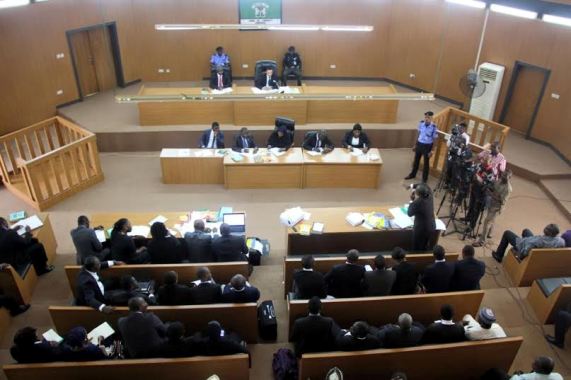By Nusrah Wali
When most people have a headache, they reach for the nearest pain reliever and pay little attention to the reasons behind the headache. This strategy usually ends up providing them with immediate, yet temporary relief as the headache returns shortly after the medication wears off. This creates a vicious cycle of over reliance on drugs without ever fully solving the problem. A holistic approach would first look at the underlying symptoms causing the headache and by treating those symptoms ensure that the headache is treated.
This analysis can be applied to many areas of life because people tend to gravitate towards a quick fix rather than seeking lasting solutions. The quick fix or lasting solution analogy is therefore applicable to the Deposit Insurance Scheme (DIS) component of the nation’s financial safety-net. The Deposit Insurance Scheme (DIS) is a financial guarantee to protect depositors in full or in part in the event of bank failure and also to offer a measure of safety for the banking system. The objective of DIS is anchored on the fact that the issue of depositor protection has become an indispensable feature of the financial safety-net arrangements worldwide.
There are two deposit insurance systems of protecting depositors’ funds and one of them is called a Paybox. A Paybox only empowers Deposit Insurers to pay depositors up to the maximum insured amount in the event of closure or failure of their banks. This gives depositors a degree of confidence to keep their money in banks, trusting that should anything go wrong, their deposit insurer has guaranteed their funds. However, the limitations with this method are that, just like Panadol will only relieve a headache without treating its underlying conditions, the Paybox system does not treat the underlying conditions that lead to bank failure which could snowball into a systemic crisis affecting other banks, and by extension, the entire financial system.
When you contrast the Paybox with a Risk Minimiser with extended mandate, you have a case of treating the symptom versus preventing or treating the problem at its source. The Nigeria Deposit Insurance Corporation (NDIC) is a Risk Minimiser that has the mandate to not only pay depositors their money up to the maximum insured amount in the event of a bank failure, but the Corporation also monitors banks’ operations in order to facilitate their safety, soundness and stability.
Advertisement
Because NDIC is a Risk Minimiser which carries the risk of insuring banks’ deposits which crystallise upon failure, it is empowered to carry out effective supervision of banks in conjunction with the Central Bank of Nigeria (CBN), and offer financial and technical assistance when necessary. The NDIC is therefore able to keep an eye on the source of potential distress and work towards averting it before it escalates into a real ‘headache’. However, in the event that the NDIC is unable to prevent the headache, for example when a bank goes under, the NDIC is also empowered like a Paybox to provide immediate relief through prompt payment of guaranteed sums to depositors. The Corporation also pays liquidation dividends to depositors whose balances are in excess of the insured limit and other claimants such as creditors and shareholders when it realises the risk and physical assets of the bank. Currently, the NDIC pays a maximum guaranteed sum of N500,000.00 to depositors of closed deposit money banks (DMBs) or non-interest financial institutions while each depositor of a closed microfinance bank (MFB) or primary mortgage bank (PMB) is paid a maximum guaranteed sum of N200,000.00
Although it is always tempting to reach for the quick fix solution to a problem, the opportunity cost in the end is often much higher and sometimes catastrophic. This accounts for why 113 jurisdictions including Nigeria have instituted some form of explicit deposit insurance as at 2014 from 17 in 1974, while another 40 jurisdictions are studying or considering its implementation. In over 26 years of its existence, the NDIC has adopted various initiatives and strategies in the discharge of its mandate, thereby holistically contributing to the safety, soundness and stability of the nation’s banking system.
Wali is an Abuja-based public affairs commentator.
Advertisement
Views expressed by contributors are strictly personal and not of TheCable.





